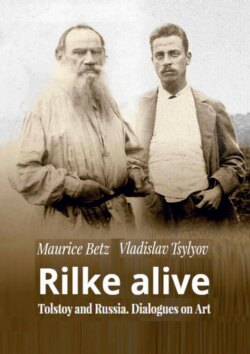Читать книгу Rilke alive. Tolstoy and Russia. Dialogues on Art - - Страница 3
Оглавление*
To characterise Betz’s memoirs, their main value lies in the fact that Rilke and Tolstoy do not appear in them as abstract, iconic heroes, but as living and contradictory people. In particular, Betz dispels the widespread myth that their meeting took place in a rapturous atmosphere1 and that, despite some disagreements, there was a rare unanimity between them.
In reality, Tolstoy did not turn out to be the good-natured old man whom Rilke wanted to make a god of art and to whom he dreamed of being like a son. On the contrary, the ’eternal Russian’ appeared to him as a majestic, terrifying, almost demonic being who ’overturned people precisely by the severe directness of his thought, like Job, the fearless co-questioner of a cruel God’.2
Since then I have never felt such deep compassion and fear at the same time..
Rilke made this painful confession in an unpublished chapter of The Notes of Malthe Laurids Brigge. Remarkably, he wanted to call it ’ Leo Tolstoy’.
And if Russia fully lived up to his expectations, becoming for him a fairytale land, ’the last refuge in the heart of God’, with a folk-artist ’full of humility and piety’, the ’furious old man’ Tolstoy clearly did not fit into his idyllic picture.
1
This version was the subject of a letter from Rilke to his Russian friend Sophia Shill immediately after the meeting, the next day.
2
in the words of Maxim Gorky, who was well aware of Tolstoy’s temperament.
